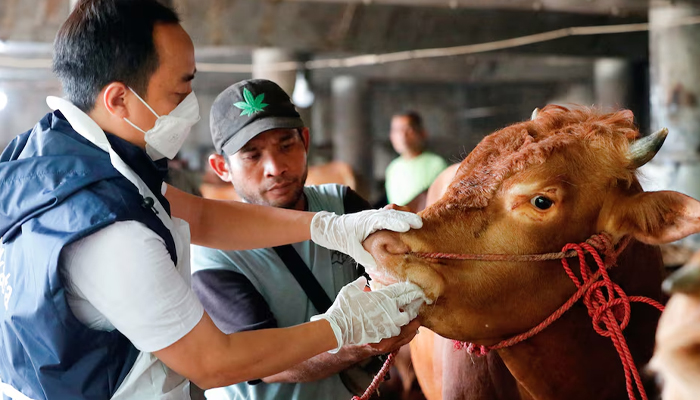Hungary suspects possible 'biological attack' linked to FMD outbreak in over 50 years
Foot-and-mouth livestock disease outbreak prompts border closures and mass slaughter of cattle in northwest
BUDAPEST: Hungary on Thursday suggested a "biological attack" as possible source of first foot-and-mouth disease outbreak in country in more than half a century, triggering border closures and mass slaughter of cattle in the northwest.
Hungary reported a first case of foot-and-mouth disease in over 50 years on a cattle farm in the northwest near the border with Austria and Slovakia last month, the World Organisation for Animal Health said, citing Hungarian authorities.
Thousands of cattle had to be culled as the landlocked country tries to contain the outbreak, while Austria and Slovakia have closed dozens of border crossings, after the disease also appeared in the southern part of Slovakia.
"At this stage, we can say that it cannot be ruled out that the virus was not of natural origin, we may be dealing with an artificially engineered virus," Prime Minister Viktor Orban's chief of staff, Gergely Gulyas told a media briefing.
Responding to a question, Gulyas said he could not rule out that the virus outbreak was the result of a biological attack, without giving information on who might be responsible.
He also said that suspicion was based on verbal information received from a foreign laboratory and that their findings have not yet been fully proven and documented.
Hungary's cattle stock numbered 861,000 head based on a livestock census in December, little changed from levels a year earlier. That constituted 1.2% of the European Union's total cattle stocks, official statistics showed.
Foot-and-mouth disease poses no danger to humans but causes fever and mouth blisters in cloven-hoofed ruminants such as cattle, swine, sheep and goats, and outbreaks often lead to trade restrictions.
Gulyas told reporters that no fresh outbreak has been detected, and authorities were continuously taking samples.
-
Late James Van Der Beek inspires bowel cancer awareness post death
-
Bella Hadid talks about suffering from Lyme disease
-
Gwyneth Paltrow discusses ‘bizarre’ ways of dealing with chronic illness
-
Halsey explains ‘bittersweet’ endometriosis diagnosis
-
NHS warning to staff on ‘discouraging first cousin marriage’: Is it medically justified?
-
Ariana Grande opens up about ‘dark’ PTSD experience
-
Dakota Johnson reveals smoking habits, the leading cause of lung cancer
-
Chris, Liam Hemsworth support their father post Alzheimer’s diagnosis












